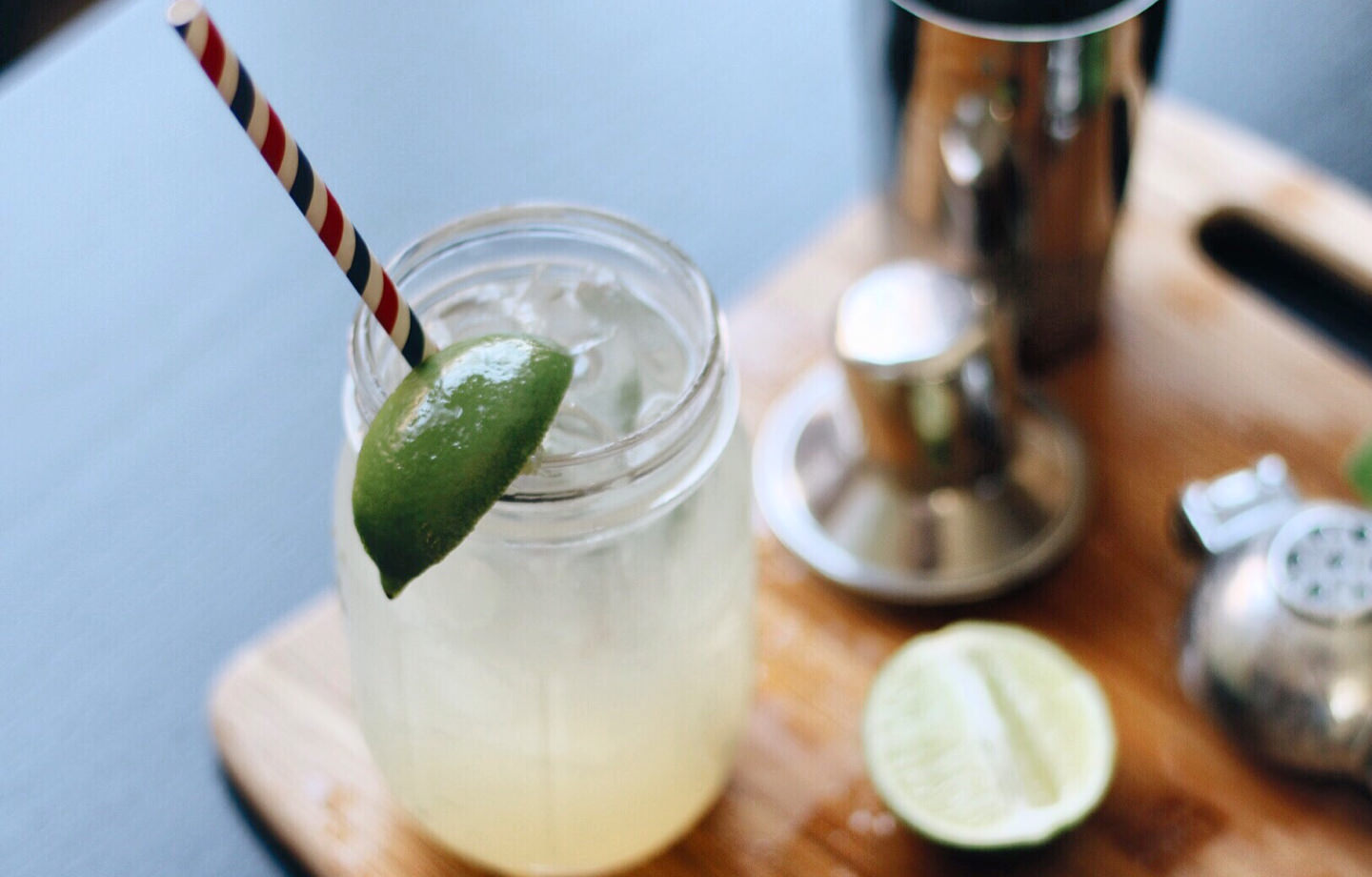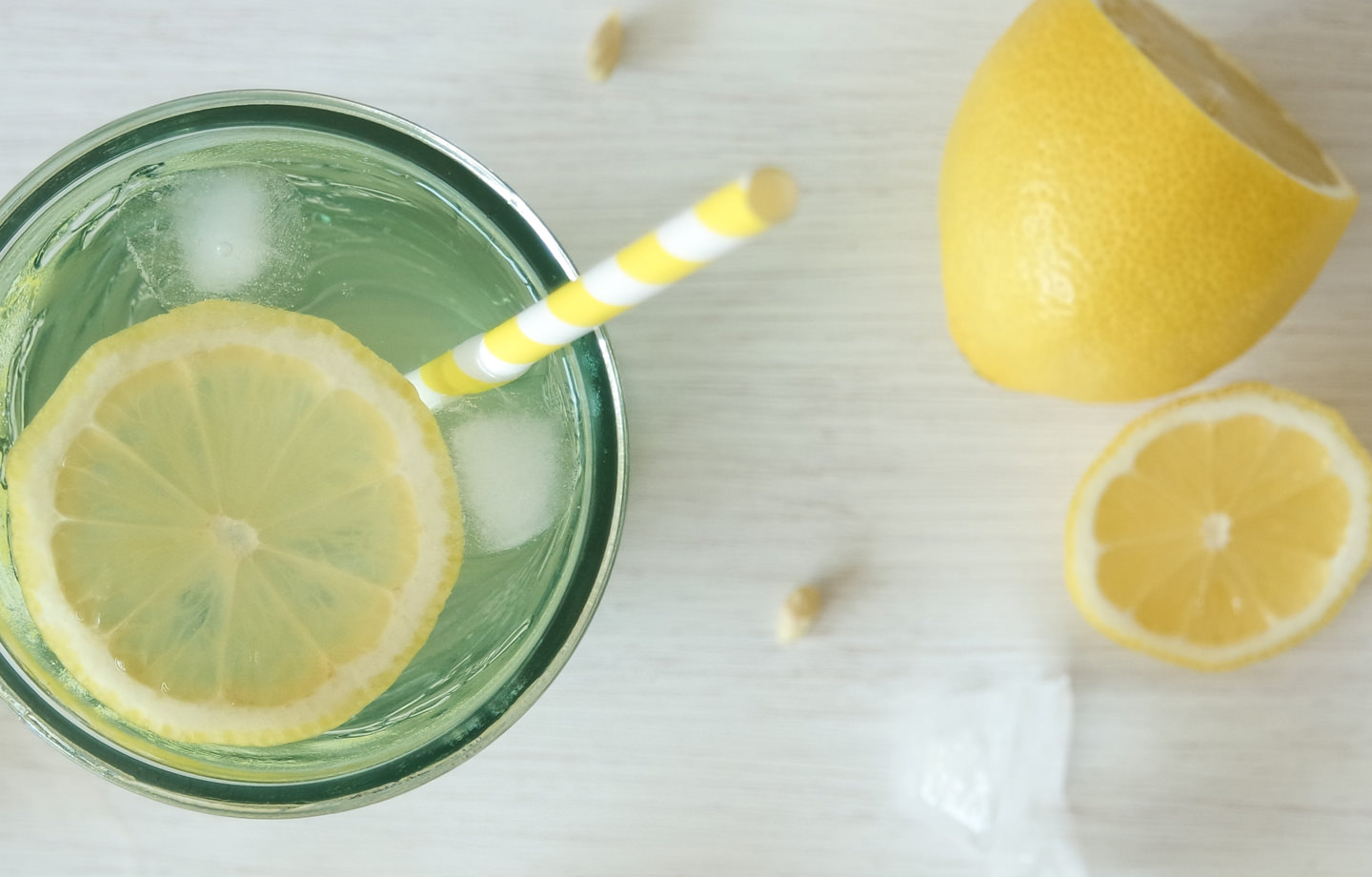Earlier this month, Starbucks made a move that could be considered to be a major one in the fight against single-use plastics: It will begin phasing out plastic straws and be completely straw-less by 2020. The chain, consisting of roughly 28,000 cafes worldwide, will begin using a recyclable straw-less lid that was originally concepted for the Draft Nitro menu item. Savvy customers realized that the lid could easily replace the need for straws altogether, and Starbucks, which had already been working towards eliminating waste and increasing recycling efforts, saw opportunity.
The move will eliminate approximately 1 billion straws from landfills per year — pretty major. While the announcement was met with mixed emotions — acclaim from environmental groups and disdain from the differently abled community, many of whom rely on straws for accessibility — one thing is for certain: with this move from the coffee super-chain the conversation around single-use plastics, and especially plastic straws, has finally (finally!) gone mainstream.
Plastic Straws: What’s the big deal?
If you’re scratching your head wondering what the big deal is with plastic straws, consider this: Over 500 million disposable plastic straws are used every day in the United States alone. That’s 500 million straws that end up in landfills, waterways, on the streets, and everywhere else, because these plastic straws are not recyclable. That’s right — they all end up in the trash in some way, shape, or form. It’s a huge issue, and one that was brought into the harsh light of day in a 2015 YouTube video that featured marine researchers removing a plastic straw from a sea turtle’s nose. The video is painful to watch, but one that puts the realities of our collective plastic consumption into stark reality (there’s a less stomach-churning reenactment in this video from FinalStraw).
Think about it — how many straws do you use in a day? During high summer (aka now), it’s not uncommon to sip one or two iced beverages a day, each with their own plastic straws, then perhaps a drink stirrer in your evening cocktail? These may seem like small potatoes compared to seemingly larger issues, like single-use plastic bags and food waste, but the truth is, these tiny little straws pose an enormous threat. How? While some straws can be recycled, most are so lightweight that they fall or float out of the mechanical sorters at your local recycling centers, ending up in the trash, and then the landfill (or just on the ground).
It takes approximately 200 years for a polypropylene straw to break down, and in that time the straw will break and shatter, making it easier to be consumed by wildlife and pollute, well, nearly every inch of the earth. Especially our oceans.

A Safer Straw Alternative
While Starbucks’ announcement was a major step in the fight against plastic straws (so far it’s the largest business to announce their elimination of straws), the coffee giant isn’t exactly a pioneer. The movement against plastic straws has been growing on a quieter local and state level for some time now. In 2008 — a whopping 10 years ago — Seattle created an ordinance that required all single-use food service items be compostable or recyclable, with the exception of plastic utensils and straws because there weren’t satisfactory alternatives available at the time.
Thankfully the market for those items has caught up with the ordinance, and just this month the city announced that plastic straws would join the ban. It’s worth noting that Seattle is also the birthplace of Starbucks — coincidence? Following suit are cities in Florida and California, with New York close behind.
Join the Fight Against Plastic Straws
It’s often said that hardship fosters innovation. While going without a straw certainly isn’t a hardship per se, the sudden attention on their environmental impact and scaling back of their use has made way for better alternatives. Compostable straws, reusable straws, paper, silicone, glass… all have experienced a boon in the market thanks to the plastic straw’s waning popularity. Drink stirrers have also seen their popularity drooping, completely removed or replaced by quick-thinking bartenders and baristas with small reusable spoons, paper or wooden stirrers or even gluten-free dry pasta sticks.
But even with the phasing out of single-use plastics and plastic straws, it’s hard to change a habit. Even the best-intentioned can forget to say “no straw please” or forget their reusable cup. Thankfully a handful of companies are making it easier to go plastic straw-free.
FinalStraw
This Kickstarter (which has already surpassed the original goal by $1,882,378 at time of reporting) features a foldable, portable straw and cleaning squeegee that makes forgetting your reusable straw at home a thing of the past. With a handy carrying case that fits in a bag or purse, or clips right to your keychain, FinalStraw is a great option for those with accessibility concerns and/or their caretakers.
Kikkerland Paper Straws
Who knew this wedding reception staple would also fulfill a need for biodegradable drinking options? These paper straws may not last long, but are great for a quick sip and easily replace plastic straws and stirrers at functions (if you really, truly need them).
Simply Straws
Co-founded by Cyndi and Chanelle Sladics, glass Simply Straws are made in California. Crafted from glass, which is less reactive to heat and cold than a stainless steel straw, Simply Straws may offer more comfort while drinking and come in a handy carrying case to keep them safe.
Bambu
If 100% all natural is your preferred avenue, Bambu straws may be the choice for you. Made from all natural bamboo, Bambu straws come in packs of 6 with a handy cleaning brush, making them an economical choice to keep at home or toss into lunch bags.
Stainless Steel Straws
One search of ‘stainless steel straws’ or ‘metal drinking straws’ will bring up plenty of buying options. These straws are super durable, portable, and lightweight, making them easy to carry with you or even keep in your car to ensure you always have a straw option handy.
Most of us wouldn’t dream of a grocery trip sans our trusty totes, but it wasn’t always this way! It took practice and memory, and the same can be said about reusable straws. With the right reinforcements, in just a few years we can all look back and think “weren’t we crazy for using all those awful plastic straws?!”
How are you joining in the fight against single-use plastic straws? Have an idea to share? Let us know by tagging us with @AvocadoMattress or #AvocadoGreenMagazine on social!

Shop Pillows
The Essential Organic Pillow Collection
Gentle, breathable, non-toxic support.






